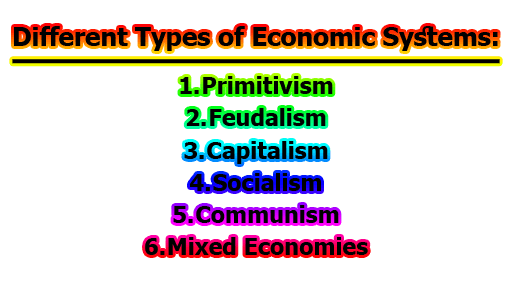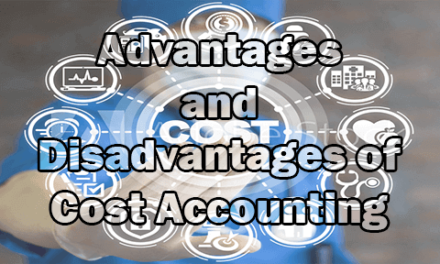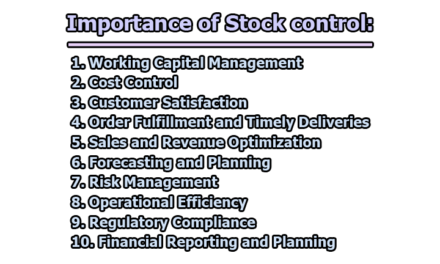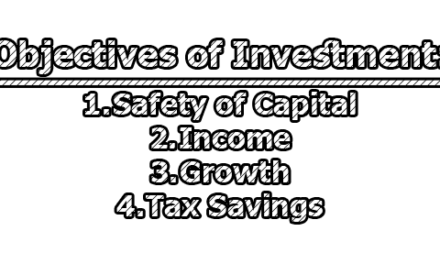Economics is a social science concerned with the production, distribution, exchange, and consumption of goods and services. It studies how individuals, businesses, and governments make choices about how to allocate resources to meet their unlimited wants and needs, and how these choices interact with each other to determine prices and market outcomes. In this article, we are going to know about branches of economics, different types of economic systems, and the roles of an economist.
Economic theories attempt to explain and predict the behavior of individuals, firms, and markets, and to identify the forces that drive economic growth and development. The field encompasses microeconomics, which focuses on the behavior of individual actors in the economy, such as consumers and firms, and macroeconomics, which looks at the economy as a whole and the factors that influence growth, inflation, and unemployment.
Economics is important because it provides a framework for understanding and analyzing a wide range of social and economic issues, such as poverty, unemployment, inflation, economic growth, and globalization, and helps policymakers make informed decisions that impact the lives of people.
Branches of Economics:
There are two main branches of economics: microeconomics and macroeconomics.
Microeconomics: This branch of economics studies the behavior of individual consumers and firms and the market forces that determine the prices of goods and services. It explores the decisions made by individuals and firms in the allocation of scarce resources, and how those decisions impact market outcomes. Microeconomics also studies market structures, such as monopolies and oligopolies, and how they influence prices and output.
Macroeconomics: This branch of economics focuses on the economy as a whole, rather than the behavior of individual actors. It studies issues such as economic growth, inflation, and unemployment, and the factors that drive these macroeconomic variables. Macroeconomics also examines the role of fiscal and monetary policy in achieving economic stability and growth.
In addition to these two main branches, there are several other areas of study within economics, including international economics, development economics, environmental economics, behavioral economics, and public economics. Each of these sub-fields contributes to a deeper understanding of the economy and the forces that shape it.
Different Types of Economic Systems:
Economic systems are the ways in which a society organizes the production, distribution, and consumption of goods and services. There are several different types of economic systems, including:
- Primitivism: Primitivism is a social and economic movement that seeks to reject modern industrial civilization and return to a more primitive or natural way of life. The goal of primitivism is to reject the consumerist and materialist values of modern society and instead prioritize simplicity, sustainability, and self-sufficiency.
- Feudalism: Feudalism was a form of political and economic organization that dominated Europe from the 9th to the 15th centuries. It was characterized by the granting of lands by a lord (usually a monarch or noble) to vassals in exchange for their loyalty and military service. Feudalism was an agricultural economy, and the production and distribution of goods were based on the manorial system. This system was centered on the manor, which was a self-sufficient unit of production that produced food, clothing, and other necessities for the lord and his household, as well as for the tenants who worked the land. Feudalism was eventually replaced by more market-oriented economic systems, as the growth of trade and commerce led to the development of cities and a rise in the merchant class. However, the feudal relationship between lords and tenants persisted in some forms, such as the European landed estates, until the 19th century.
- Capitalism: Capitalism is an economic system based on private ownership of the means of production, with goods and services produced and exchanged through a market system. Under capitalism, individuals and businesses are free to make their own economic decisions, and the pursuit of profit is the primary motivation.
- Socialism: Socialism is an economic system in which the means of production are owned and controlled by the government or the community as a whole, rather than by individuals. The goal of socialism is to reduce income inequality and provide equal access to goods and services for all members of society.
- Communism: Communism is a political and economic ideology that advocates for a classless society and the abolition of private property. Under communism, the means of production are owned and controlled by the community as a whole, with goods and services distributed based on need rather than market exchange.
- Mixed Economies: Mixed economies are systems that incorporate elements of both capitalism and socialism. In a mixed economy, the government regulates certain aspects of the economy, such as healthcare, education, and housing, while also allowing for private enterprise in other sectors.
Each of these economic systems has its own strengths and weaknesses, and the type of system that is in place in a given country is often shaped by its history, culture, and political landscape.
Roles of an Economist:
Economists play a crucial role in shaping our understanding of the economy and informing economic policy. Some of the key roles of economists include:
- Conducting economic research: Economists conduct research to better understand economic phenomena and make predictions about future trends. They use statistical analysis, mathematical modeling, and other methods to study issues such as economic growth, inflation, unemployment, and the distribution of income.
- Advising policymakers: Economists often work as advisors to governments and other organizations, providing recommendations on economic policy issues such as taxes, monetary policy, and trade policy.
- Forecasting economic activity: Economists use their research and analysis to make predictions about future economic conditions, such as future levels of economic growth, inflation, and unemployment. These forecasts inform policy decisions and help businesses make investment and hiring decisions.
- Educating the public: Economists play an important role in educating the public about economic issues and helping to demystify complex economic concepts. They may work as teachers, writers, or public speakers, communicating their insights and expertise to a wider audience.
- Working in the private sector: Many economists work in the private sector, where they may be employed by consulting firms, financial institutions, or corporations. In these roles, economists may provide economic analysis, financial forecasting, and other services to help companies make informed business decisions.
Overall, economists play a key role in understanding and shaping the economy, and their work has far-reaching implications for individuals, businesses, and governments around the world.

Library Lecturer at Nurul Amin Degree College










